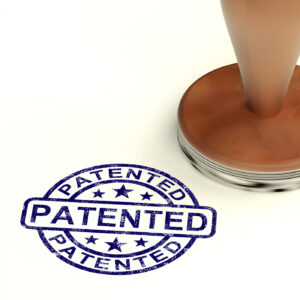What to consider when drafting an Intellectual Property contract?

The first consideration is the type of IP contract being drafted. There are several different types of IP contracts in the EU, such as patent licenses, trademark licenses, copyright licenses, and trade secrets contracts. It is important to determine which type of contract best suits the needs of the company and to determine the scope of the agreement. The second consideration is the jurisdiction of the contract. The jurisdiction of the contract determines which laws will apply to the contract and the parties involved. It is important to select a jurisdiction that is most appropriate for the company and the type of IP being protected. The third consideration is the language of the contract. The language of the contract should be clear and concise and should be tailored to the needs of the company. It is important to include all relevant terms and conditions in the contract, and to ensure that they are clearly understood by all parties involved. The fourth consideration is the enforcement of the contract. It is important to consider how the contract will be enforced in the event of a dispute. It is important to include provisions for dispute resolution and to ensure that the contract is enforceable in the event of a breach of the agreement. The fifth consideration is the duration of the contract. It is important to determine the length of the contract and to include provisions for renewal or termination. Companies should also consider the possibility of amendment or termination of the contract in the event of unforeseen circumstances. Finally, it is important to consider any additional clauses or provisions that may be included in the contract. This could include confidentiality provisions, warranties, and indemnities. It is important to ensure that these provisions are in line with the company’s legal requirements and are clearly understood by all parties involved.
In conclusion, when drafting an IP contract in the EU, it is important to consider the various legal requirements and to ensure that the contract is tailored to the needs of the company. Companies should ensure that the contract is clear and concise and that all relevant terms and conditions are included.
We offer our clients a dedicated and unique experience of expertise that is necessary for the exploitation of intangible assets. We will also endeavor to keep you informed and up-to-date about intellectual property and digital economic issues through our articles and newsletters written by the Dreyfus Legal Team.



 Technology is more integral to our lives and businesses than ever before. With this shift, the need for sound legal protection of technology-related assets has grown as well. This is where IT law comes into play. IT law, or information technology law, is a branch of law that covers the use, development, and implementation of technology. It’s a complex and ever-evolving area of law, and it can be the difference between success and failure for many businesses.
Technology is more integral to our lives and businesses than ever before. With this shift, the need for sound legal protection of technology-related assets has grown as well. This is where IT law comes into play. IT law, or information technology law, is a branch of law that covers the use, development, and implementation of technology. It’s a complex and ever-evolving area of law, and it can be the difference between success and failure for many businesses.
 Copyright is an important form of intellectual property protection that authors, artists, and other creators of works can register in the European Union (EU). The EU has a harmonised copyright system that applies to all of its member states, making it easier to protect your work across the entire EU. Here are the steps for registering a copyright in the EU.
Copyright is an important form of intellectual property protection that authors, artists, and other creators of works can register in the European Union (EU). The EU has a harmonised copyright system that applies to all of its member states, making it easier to protect your work across the entire EU. Here are the steps for registering a copyright in the EU.


 Intellectual property (IP) is an ever-evolving concept that is used to protect creations of the mind. It includes inventions, literary and artistic works, symbols, names, and images used in commerce. Protecting this intangible property is critical to ensuring that creators, inventors, and business owners get the recognition and financial reward that they deserve for their work. Intellectual property protection comes in several forms and can be used to protect different types of intellectual property.
Intellectual property (IP) is an ever-evolving concept that is used to protect creations of the mind. It includes inventions, literary and artistic works, symbols, names, and images used in commerce. Protecting this intangible property is critical to ensuring that creators, inventors, and business owners get the recognition and financial reward that they deserve for their work. Intellectual property protection comes in several forms and can be used to protect different types of intellectual property.




 Whether you are an entrepreneur, author, artist or inventor, it is important that you understand the steps to maximize your intellectual property protection. Here are some strategies you can use to do so.
Whether you are an entrepreneur, author, artist or inventor, it is important that you understand the steps to maximize your intellectual property protection. Here are some strategies you can use to do so.
 Whether you are an inventor, an artist, or a company, it’s likely that you hold intellectual property rights that may be subject to a licensing agreement. Granting a license on an intellectual property (IP) asset offers a variety of benefits, ranging from generating additional income to safeguarding innovative ideas of your company. Understanding the advantages associated with leveraging your IP rights through a license will enable you to grasp the optimal strategy to pursue.
Whether you are an inventor, an artist, or a company, it’s likely that you hold intellectual property rights that may be subject to a licensing agreement. Granting a license on an intellectual property (IP) asset offers a variety of benefits, ranging from generating additional income to safeguarding innovative ideas of your company. Understanding the advantages associated with leveraging your IP rights through a license will enable you to grasp the optimal strategy to pursue.
 As technology and innovation develop, intellectual property (IP) rights are becoming increasingly important in the European Union (EU). From the self-employed to large companies, everyone can benefit from a sound IP strategy.
As technology and innovation develop, intellectual property (IP) rights are becoming increasingly important in the European Union (EU). From the self-employed to large companies, everyone can benefit from a sound IP strategy.